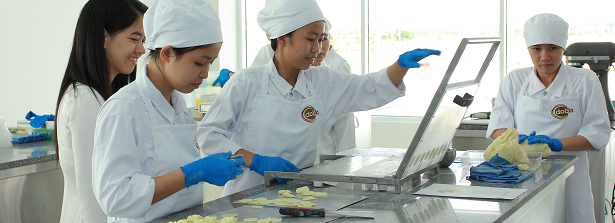Women as Inclusive Business Partners

‘Women as Inclusive Business partners’ is an initiative by BoP Innovation Center and its strategic partner ICCO Cooperation. The initiative is built on the recognition that there is a business case for the private sector to actively engage women as producers, employees, distributors or consumers.
Most enterprises are not aware of or have not fully explored this potential for their business. This multi-stakeholder initiative seeks the strength of the private sector, from SMEs to multinational companies, to drive change that recognizes the – often hidden – potential of women across the value chain. It raises awareness around the topic by sharing inspiring examples of good practices and supports companies in taking concrete action.
In spite of the potential benefits of developing business models that engage women as inclusive business partners, relatively few companies are actually doing it. Initial research has shown that there are a number of reasons why this isn’t happening. Many companies are unaware of the benefits, while others recognize the benefits, but are unsure where to start and lack the right interface with other parties like NGOs, knowledge institutions or governments. ‘Women as Inclusive Business Partners’ was developed to help companies overcome these obstacles.
A very interesting case is the ‘5by20’ project by The Coca-Cola Company. ‘5by20’ is the Coca-Cola Company’s global commitment to enable the economic empowerment of 5 million women entrepreneurs across the company’s value chain by 2020. The Coca Cola Company realizes that women play a crucial role in their value chains: from farmers (50% are women) to buyers. More than 70% of consumer purchasing decisions about Coca Cola products are being made by women.
Another interesting case is JITA, a joint venture of Danone and Care. JITA is dedicated to empowering women through a network of enterprises, creating employment opportunities and improving access to markets for underprivileged consumers. JITA does this by creating and supporting the rural distribution network between consumer brands and low income consumers, through a network of hubs and service providers.
Visit the website of BoPInc for more information and an overview of good practices.






